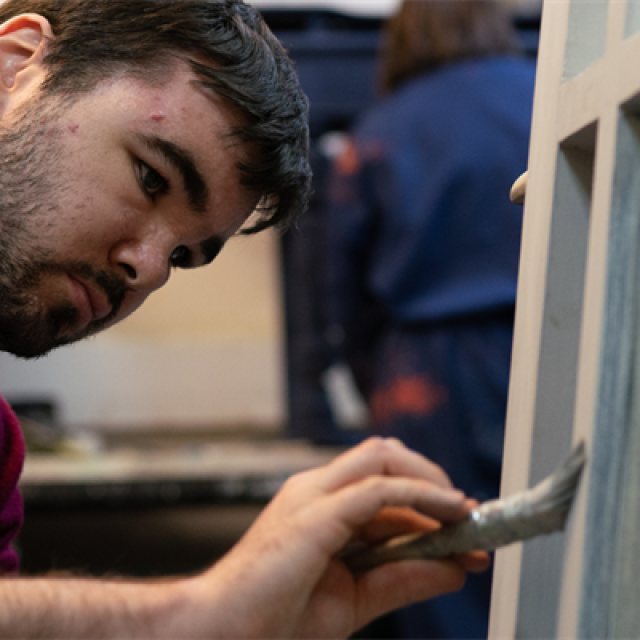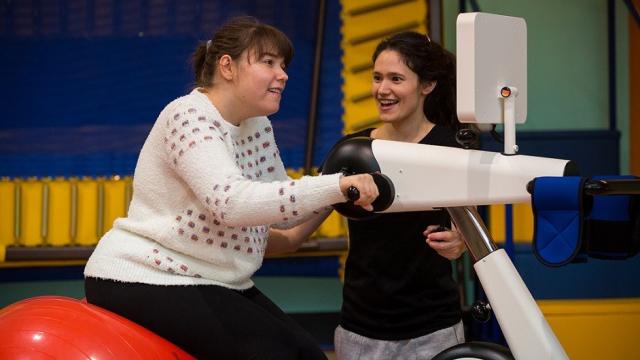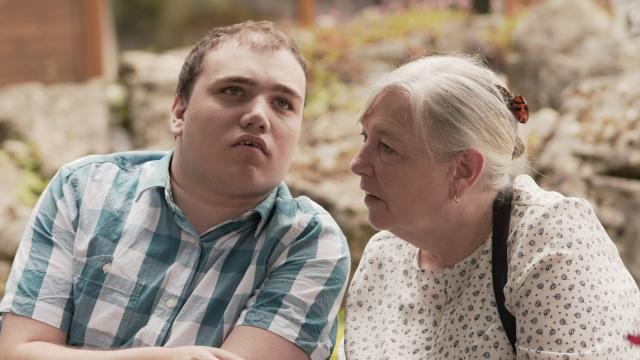Positive Behaviour Support (PBS)
The experts in our Clinical Assessment and Intervention Team enable us to provide ambitious support to help people live ambitious lives. Our focus is on encouraging people to challenge themselves to achieve their own goals and get the most out of life, while supporting increased independence and choice.
Almost all behaviour is learnt, and behaviour that is challenging to support is no different.
We believe behaviour that challenges is a form of communication - and that behaviour will get an important need met. We need to understand the reasons why people display behaviour that challenges before we can support them to have more positive behaviour. Our work is evidenced based and data driven.
Our PBS consultants carry out functional assessments of any behaviour that is challenging a support team, and work alongside the individual, their family, and their support team. They support people to develop functionally equivalent skills, which means they no longer need to engage in the challenging behaviour. They plan care in a person-centred way to improve people's quality of life, and work towards living the least restrictive life possible.

Ed's story
Support from SeeAbility has been life-changing not just for Ed, but for his whole family. We spoke to Ed’s mum Sharon about the changes she has seen in her son since he moved to Bicester – and how SeeAbility always goes the extra mile for the people we support.

Our Positive Behaviour Support (PBS)
We reduce challenges for people who have learning disabilities or autism through a combination of working with each person, their family and the team that knows them best. We work with our speech and language therapists and, where a person may have a visual impairment, our vision rehabilitation workers.
We carry out functional assessments and then develop a PBS plan that is specific to that person. We then train our staff team to support the person in the best ways that work for them. This may involve teaching easier, alternative ways for the person to get their needs met.
Often, by making small changes to the physical environment or the way support is offered, we can help people take more control of their lives. We always aim to increase each person’s skills and independence and help them have a more fulfilled lifestyle.
We use proactive and reactive strategies to guide our team members to avoid conflict with each person we support. Sometimes people we support need physical interventions to keep them and others safe. SeeAbility is registered to provide PROACT-SCIPr-UK® as their preferred package of physical interventions.
This system has been adopted because it is BILD (British Institute of Learning Disabilities) accredited and echoes our values of understanding why behaviour that is challenging takes place, and emphasises the importance of teaching other skills. Occasionally, physical interventions are needed, but these are prescribed on an individual basis and are used where there is no alternative. Any restrictive practices are kept to an absolute minimum and are always agreed at a multi-disciplinary level, involving the person, family and associated professionals.



